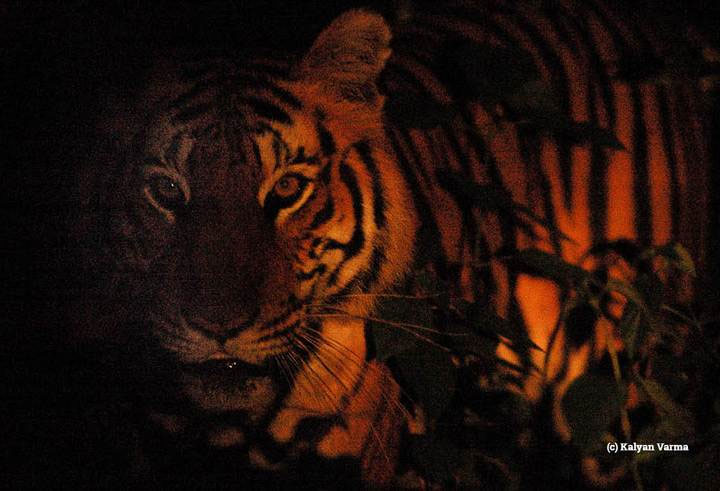Some animals are having to feed at night because of human impact
Humans are "invading" too much into the natural world and making wild animals increasingly lack of space to live and develop populations freely.
A recent study by American scientists points out that the expansion of humans is pushing mammals such as deer, tigers and bears, . which work primarily in the present day to go. eat at night.
The presence of humans makes animals fear and flee. Human activity now accounts for 75% of the planet's land area. Therefore, the evasion of animal species also makes it more difficult.
It is impossible to appear in the daytime because it has to flee forcing some mammals to change the habit of eating during the day, which has been around for thousands of years and turning to foraging at night.
Although many will consider this a favorable change because they can avoid carnivores during the day. However, it is clear that lifestyle changes can seriously affect fertility and populations of animals.

Lifestyle changes can seriously affect fertility and populations of animals.
Human activity scares animals and changes their living habits
According to Anh Independent newspaper, the team of Kaitlyn Gaynor and colleagues at the University of California, Berkeley (USA) analyzed nearly 80 studies synthesized from six continents. They track mammals' activities and lifestyles using GPS and cameras.
Based on the collected data, they assessed the night behavior of some animals when the presence of nearby humans appeared. Human impacts have many types such as illegal walking or hunting, agricultural activities or road construction.
Among the collected results, they found that beavers or lions increased nighttime activity when people were near their habitat.
Scientists warn, human activity is impacting wildlife populations. Although some activities may not degrade the number of species, in the long run, human presence will affect the evolution and reproduction of all species.
Dr. Ana Benitez-Lopez, an ecologist at Radboud University Nijmegen said that animals that have a habit of eating and operating during the day are not always ready to work at night. They will have to learn how to adjust the biological clock to feed, mate, . at night. And sometimes something that doesn't belong to instincts and hobbies will be hard to do best.
When lifestyle and habits change, animals that are unable to adapt can risk starvation or even find a partner to mate and reproduce. Not to mention, the fear of many animals before humans makes them more cautious and less time to eat.
Changing activity habits can create serious consequences for the ecosystem
Lifestyle changes make it easy for the food chain and ecosystem to be overturned in an order. For example, if they are forced to feed at night, they will not be able to "control" familiar prey during the day. When the ecosystem has no ties and control between species, it will of course lead to an explosion in the number of a species not destroyed by the natural enemies. At that time everything will be very difficult to control.

If the animals do not have a binding relationship in the food chain, the ecosystem will become very chaotic.
The research has a profound impact on a global scale and is not just confined to any mammal.
Dr Benitez-Lopez said: "The importance of this study is the collection of data from all over the world, while trying to find out if this is really happening to all animals. "There are mammals or just rumors. We are encroaching more and more natural habitats and leaving no living space for mammals."
Perhaps it is time for people to realize their own behavior with nature and take measures to harmonize the benefits between the development of humanity and the living space of other animals. on the planet.
Research results have been published in the recent Science.AR magazine.
- The effects make animals crazy and can kill people
- Ranking hot spots of human impact on coastal areas
- Why do cats see at night but daytime sightings?
- Decode the exquisite ceramic vase used to feed unsuspecting horror animals
- Video: Thousands of starfish die massively on the Russian island
- Life of kingfisher family
- Working at night breaks down the brain biological clock
- Night lights affect people's mood
- Raising flies for animal feed
- 4 creatures can return from the dead in the joy of science
- There should feed the children?
- Discovering bees 'licking sweat to live'
 Animal 'suffering' after hibernation
Animal 'suffering' after hibernation Why do goats climb well?
Why do goats climb well? Scientists were surprised to see chimpanzees eating turtles
Scientists were surprised to see chimpanzees eating turtles Giant catfish died deadly due to drought in Thailand
Giant catfish died deadly due to drought in Thailand